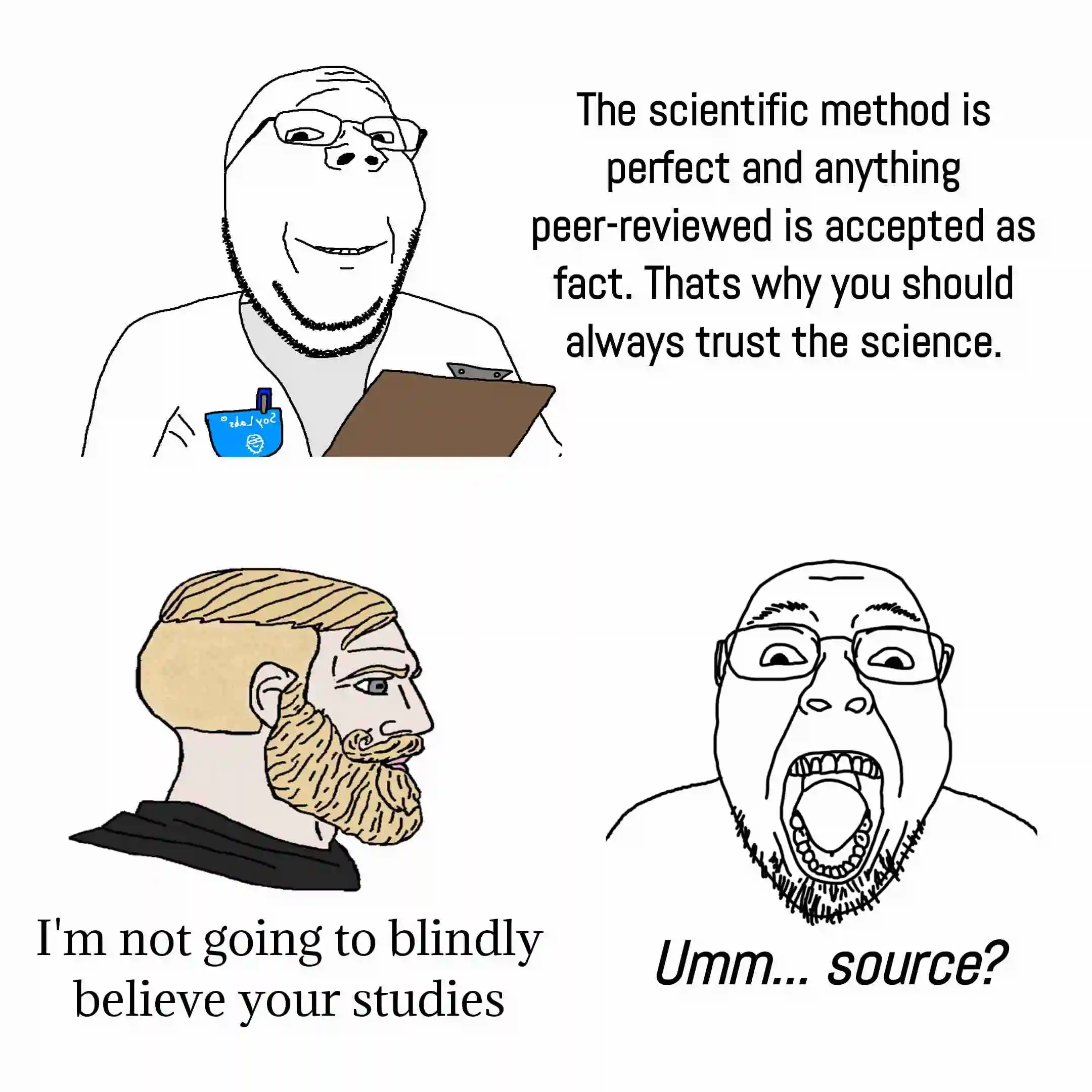this post was submitted on 18 Sep 2023
-149 points (12.2% liked)
Memes
45731 readers
965 users here now
Rules:
- Be civil and nice.
- Try not to excessively repost, as a rule of thumb, wait at least 2 months to do it if you have to.
founded 5 years ago
MODERATORS
you are viewing a single comment's thread
view the rest of the comments
view the rest of the comments

Engineering is a branch of Science. Specifically, Engineering is applied science. For example, scientists discovered that microwaves existed. Engineers made them heat up your food. How did we make safer and better microwaves appliances? Engineers applied the scientific method and iterated on the design and performed tests.
To say engineering is separate from the science is incorrect.
It was actually a scientist who made the first microwave.
They were doing experiments with hamsters with cryogenics, and warming up the frozen hamsters with hot paddles. It didn't work that well, and the scientist felt bad for the hamsters.
So, he built the first microwave to warm the hamsters more evenly and 'humanely'.
That's right. The first thing cooked in a microwave was literally a hamster.
EDIT:
First Desktop microwave that matches what we consider a microwave today, I should have said. My apologies.
References:
A Smith, J Lovelock, A Parkes, 1954: Resuscitation of Hamsters after Supercooling or Partial Crystallization at Body Temperatures Below 0° C.. Nature 173, 1136–1137
R K Andjus, J E Lovelock, 1955: Reanimation of rats from body temperatures between 0 and 1° C by microwave diathermy. The Journal of Physiology, 128.
Lovelock, J E, Smith A U, 1959, Heat transfer from and to animals in experimental hypothermia and freezing. Annals of the New York Academy of Sciences, 80: 487-499.
The sources on wikipedia say it was Percy Spencer, an American self-taught engineer. He noticed a Mr. Goodbar candy bar he had in his pocket started to melt from microwaves from an active radar set he was working on. The first food deliberately cooked was popcorn, and the second was an egg, which exploded.
Here are the direct sources: https://web.archive.org/web/20110709081022/http://www.gallawa.com/microtech/history.html https://www.youtube.com/watch?v=4h1ESUz2H3E
If you have a link to the hamster experiment I would love to read more. I might dive into a microwave research hole today! lol
https://www.youtube.com/watch?v=2tdiKTSdE9Y
Video has links to references and actual interview with the scientist.
It wasn't sold or marketed, but it was a microwave.
Very cool! I'll check it out! Thanks
Here is an alternative Piped link(s):
https://www.youtube.com/watch?v=2tdiKTSdE9Y
Piped is a privacy-respecting open-source alternative frontend to YouTube.
I'm open-source, check me out at GitHub.
Here is an alternative Piped link(s):
https://www.youtube.com/watch?v=4h1ESUz2H3E
Piped is a privacy-respecting open-source alternative frontend to YouTube.
I'm open-source, check me out at GitHub.
Go home, bot. You're drunk.
Engineering and science are separate though. They may share many characteristics and share knowledge between them, but the focus and results are fundamentally different.
https://en.m.wikipedia.org/wiki/Engineering#Science